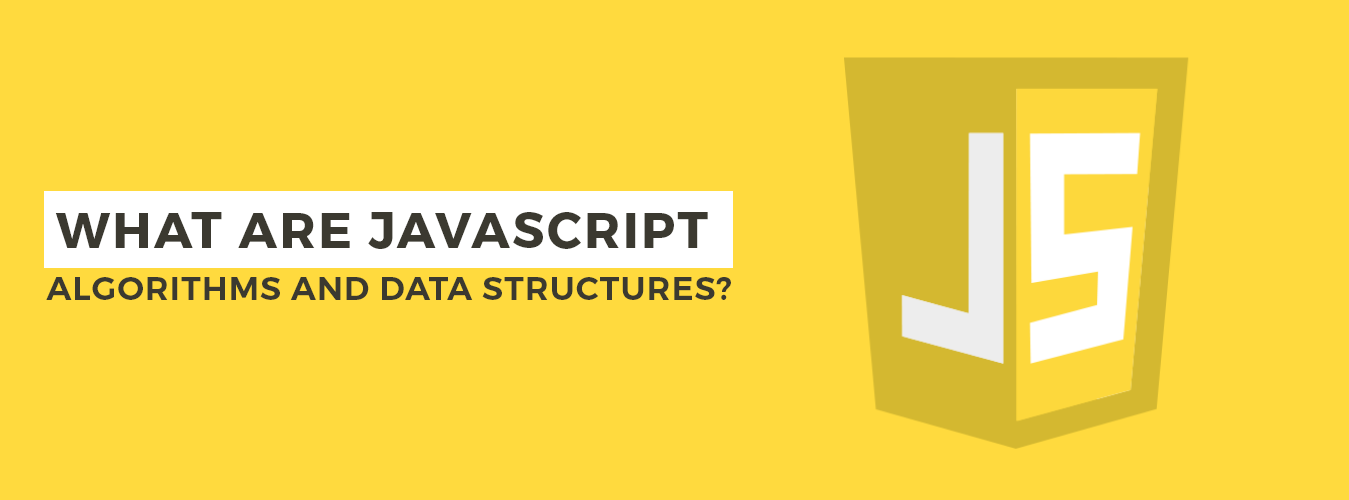Overview
The importance of JavaScript data structures and algorithms has grown significantly in the modern, fast-paced digital environment where innovation and efficiency are at the forefront. These vital tools form the basis for resolving complicated issues and improving the functionality of software programs. JavaScript stands out among the many computer languages due to its widespread use and adaptability in web development.
This article explores the underlying ideas, relevance, and valuable applications of JavaScript algorithms and data structures, delving into their fascinating universe. Understanding these ideas can considerably improve your capacity to design clear, effective, and scalable code, regardless of your level of programming experience.
Crafting Your Ideal Mobile App/Experience Starts Here!
Ready to elevate your business? Your custom app is just a click away.
Yes Let’s goAlgorithms: The Building Blocks of Efficient Code
Algorithms are detailed processes used to complete jobs or address specific challenges. They give JavaScript Development Companies a systematic approach to problem-solving, allowing them to produce effective and optimized solutions. Here is a closer look at a few JavaScript algorithms that are frequently used:
Sorting Algorithms
Programmers frequently need to sort data, and JavaScript offers some algorithms, including Bubble Sort, Selection Sort, Insertion Sort, and Quicksort. Based on specific criteria, these methods assist in rearranging elements in an array in ascending or descending order.
Searching Algorithms
Searching methods are used when a certain element inside a dataset needs to be located. JavaScript provides algorithms like Linear Search and Binary Search that make it possible to discover elements quickly while using less time and resources.
Graph Algorithms
Graphs are frequently used to illustrate intricate data relationships. Graph traversal and analysis are made possible by algorithms like Depth-First Search (DFS) and Breadth-First Search (BFS), which make it possible to perform tasks like determining connections or locating the shortest path.
Also Read: 7 Must-Try JavaScript MVC Frameworks
Data Structures: Organizing and Managing Data
Data structures are containers used to store and organize data efficiently. Choosing the right data structure is crucial for optimizing memory usage and performing operations effectively. Here are a few essential data structures in JavaScript:
Arrays
An array is one of the most fundamental data structures, which provides a mechanism to store several values in a single variable. They handle numerous activities like adding, removing, and updating elements and offer quick access to elements utilizing index-based retrieval.
Linked Lists
Dynamic data structures called linked lists are made up of nodes connected by references. When the amount of the data is unknown or frequent insertions and deletions are anticipated, they are especially helpful. Although linked list capability is not built into JavaScript, you may still construct it using objects or classes.
Stacks and Queues
Stacks and queues are data structures that follow the Last-In-First-Out (LIFO) and First-In-First-Out (FIFO) principles, respectively. It is used for tasks like managing function calls or undoing operations, while queues are ideal for task scheduling or event handling.
Trees
Trees are hierarchical data structures widely used in applications like file systems and databases. Common types of trees include binary, AVL, and red-black trees. JavaScript doesn’t have a built-in tree data structure, but you can implement them using objects or classes.
Also Read: Top 10 JavaScript Frameworks to Work With
Advantages and Benefits:
Understanding and implementing algorithms and data structures in JavaScript offers several benefits:
Improved Efficiency
You can dramatically improve the performance of your code by selecting the appropriate method and data structure. Improved scalability, shorter execution times, and less memory use are all benefits of optimized solutions.
Skills for Solving Issues
Understanding algorithms and data structures improves your ability to solve problems. You can use it to identify effective strategies, analyze and implement issues.
Adaptability and Flexibility
Because of JavaScript’s adaptability, you can use algorithms and data structures in various contexts. These ideas can be used for various issues, whether related to backend systems, mobile apps, or online development.
Improved Cooperation
Data structures and algorithms are the building blocks of good communication and teamwork among JavaScript Development Companies. Teamwork and coding are made easier by using vocabulary and a common understanding.
Also Read: Top JavaScript Frameworks for Mobile App Development
Conclusion
JavaScript algorithms and data structures are fundamental tools that enable developers to solve complicated problems, improve the efficiency of their code, and efficiently manage data within their JavaScript applications.
Data structures and algorithms offer methodical, sequential ways of problem-solving. JavaScript provides a variety of techniques to effectively complete various tasks, including sorting elements, looking for certain values, and traversing graphs. Developers can increase the efficiency of their code and obtain quicker execution speeds by comprehending and using these methods.
JavaScript’s data structures make it possible to manage data organizationally and effectively. The built-in data structures that provide flexibility and variety for storing and manipulating data include arrays and objects. Programmers can also design unique data structures using JavaScript classes or objects like linked lists, stacks, queues, and trees. These structures support various programming demands by enabling effective data organization, insertion, deletion, and retrieval.
Developers can improve their problem-solving skills, optimize code performance, and produce scalable apps using JavaScript algorithms and data structures. Understanding these ideas helps developers collaborate effectively by creating a shared vocabulary and framework for debating and executing solutions.
Crafting Your Ideal Mobile App/Experience Starts Here!
Ready to elevate your business? Your custom app is just a click away.
Yes Let’s go








